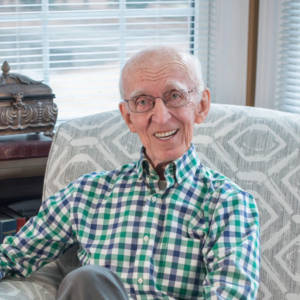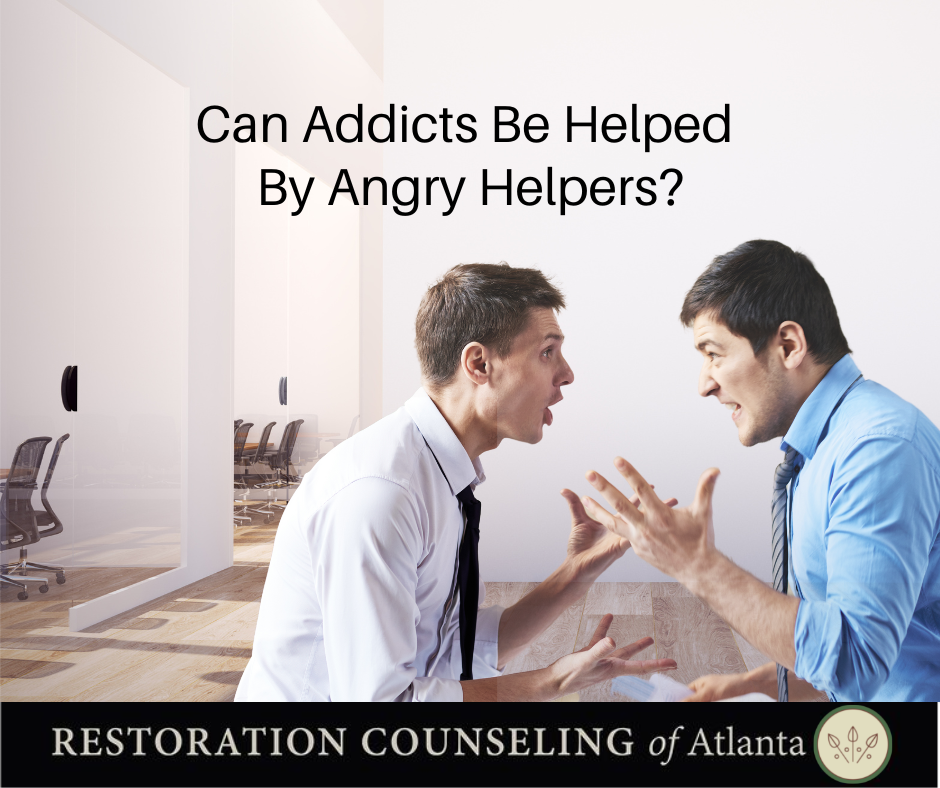Information enters the brain through our five senses and is processed to determine an appropriate response. If the process concludes that danger is present, a signal is sent to the part of the brain that responds to threat by activating either the fight or flight mechanism. In the case of fight, we experience a feeling of anger as the system gears up to fight to defend itself. When this happens, the part of the brain responsible for calm feelings and rational thoughts shuts down in deference to fight for your life.
Rhetorical Considerations
Given the preceding description, the question asked in the title of this piece is rhetorical.
If you were an addict looking for help, which would you prefer; a defensively angry counselor or AA sponsor, or one who is calm, clear-headed, compassionate, and pleasantly understanding?
Conversely, if you were a counselor wishing to help a struggling addict, would you prefer a client who sees you as a friend or a menace? So much for the obvious.
Nevertheless, other questions remain.
Two that come to mind are:
- What would prompt the title question about angry helpers in the first place?
- What is it about addicts that would suggest the presence of anger in a counselor-counselee relationship?
The answers to both revolve around the addict’s perception of danger and his resistance to any change suggested by the well-meaning helper.
Is there danger?
To put it simply: Addictive behavior includes drinking, drug abuse, gambling, pornography, and anything else that stimulates the release of chemicals in the brain that quiet the brain’s danger signals. It all begins with chronic emotional discomfort, best described as feeling unsafe. Moreover, that unsafe feeling can be experienced by the addict AND the counselor.
Typically anger indicates that someone feels unsafe. Since the alcoholic has learned that drinking allows him to feel safe, he sees anyone who proposes that he abstain as a threat to his well-being. The addictions counselor intending to help an alcoholic invariably stipulates that his client discontinues drinking. Although there are valid therapeutic reasons requiring 100% abstinence, the alcoholic in early recovery understandably may not understand those reasons.
What about the anger?
At the outset, at some level of repressed awareness, the helper and the helpee are at odds with each other in a relationship that calls for cooperation. In short, there is an inherent conflict. In short, someone is about to be angry. Moreover, to appear nice, both parties may strive to hide their anger, which is another crucial issue for them to consider.
Up to this point, we have focused on why the addict entering treatment is likely to be angry. It may be assumed that an angry, resistant patient will be difficult to help. Angry people are usually not friendly toward others, and with that, we encounter the other side of the coin. We meet the counselor who wishes to extend a helping hand to someone whose grim countenance shows no trace of acceptance or gratitude. At this point, we ask whether this encounter contains the ingredients to arouse anger in the helper.
I ask myself how I feel about ungrateful people. I recall one of the first things I taught my infant children to say was thank you. When the child obediently parroted the phrase, I rewarded her with another two-word phrase – good girl.
And there it was. Children who say thank you are good. And conversely …Wow!
What is Neuroscience?
There is a term that gained prominence in the wake of fledgling neuroscience. Neuroception was previously called intuition or having a sixth sense. It was used to explain statements like: I don’t know why, but there’s something about that man that I don’t like, or to explain why a baby may cry at the sight of one person but smile and coo in response to another.
Why is neuroscience important?
Apparently, emotional states are transmitted by the vagus nerve and connecting cranial nerves and are registered in facial muscles as a function of the autonomic nervous system. Neuroception is the process by which we read the nonverbal indicators of someone’s emotional state. The person we hope to help may be reading our contempt.
With neuroception as a channel of his intuitions, a helper may sense the following messages from the person he is seeking help.
- I don’t like you.
- You don’t know what you’re talking about.
- I’m right. You’re wrong.
- You’re stupid.
- Leave me alone.
It would be a rare person who would not be put off by such a message in a social encounter. Since counseling is a social encounter, the helper must be prepared to cope with unresolved issues that the message might trigger in himself; issues such as certain false beliefs.
I must be liked and approved of; I must be agreed with; I must succeed in every endeavor; and I must be right. This means looking beyond the message and seeing the need in the troubled addict. This means the counselor doesn’t struggle with false beliefs because his relationship with Jesus Christ assures him that he is enough. He knows he is safe.
Everything we do to help the addict at Restoration Counseling begins with and rests upon that basic message.
You have come to a safe place where someone cares. You are enough.

Written by: Patrick Caffrey, LPC
Roswell Location
pat@restorationcounselingatl.com, ext. 114

